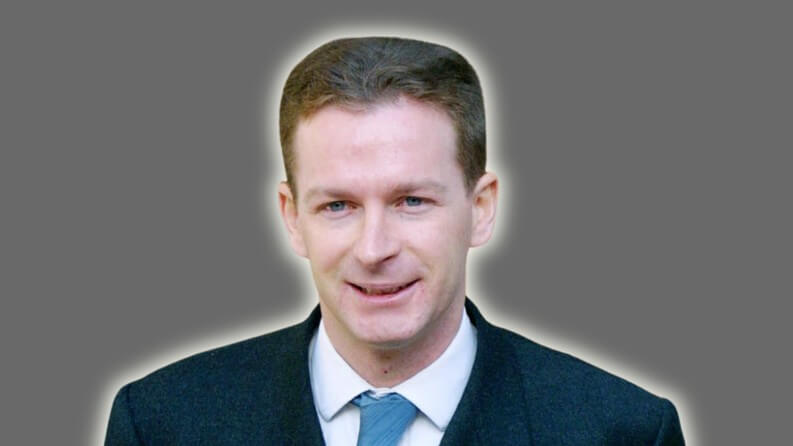Bruno Quintavalle: A Voice of Conscience in Modern British Legal and Ethical Debates

The name Bruno Quintavalle resonates in the fields of law, ethics, and politics within the United Kingdom. Known as the co-founder of the ProLife Alliance alongside his mother Josephine Quintavalle, his career and advocacy have spanned contentious issues such as abortion, human cloning, embryo research, and end-of-life medical ethics. Over the years, he has consistently placed himself at the intersection of legal argument and moral conviction, sparking debates that continue to shape the way society approaches questions of life, death, and human dignity.
Early Involvement and the Birth of the ProLife Alliance
In 1996, Bruno Quintavalle and his mother, Josephine, took the bold step of launching the ProLife Alliance. At the time, the political climate in Britain was dominated by mainstream parties that often avoided direct confrontation with the sensitive issue of abortion. By forming a political party focused on the right to life, the Quintavalles sought to bring the debate into the public arena with clarity and persistence.
The ProLife Alliance contested the 1997 general election, standing in fifty-six constituencies across the UK. Although the party secured just under twenty thousand votes—representing a small proportion of the national total—the symbolism of its participation mattered far more than its electoral results. It announced, loudly and unmistakably, that there was a determined group of activists prepared to challenge the status quo on life issues.
Legal Battles with Broad Social Implications
One of the most significant aspects of Bruno Quintavalle’s role was his willingness to use the law as a tool for advancing ethical arguments. This approach distinguished him from many other campaigners, who confined themselves to protests or lobbying. Quintavalle recognised that the courtroom could become a stage for pressing questions that society might otherwise prefer to avoid.
Perhaps the most well-known legal confrontation involving the ProLife Alliance was the case against the BBC, after the broadcaster refused to air a party political broadcast. The Alliance had produced a video that included graphic images of abortion procedures, aiming to confront the public with what they viewed as the reality of abortion. The BBC argued that the content was too disturbing for general transmission. Quintavalle and his colleagues took the matter to the courts, insisting that censorship undermined democratic debate.
The Court of Appeal initially ruled in favour of the ProLife Alliance, agreeing that the refusal had been unjustified. However, the House of Lords later overturned the decision, siding with the broadcaster. Although the ultimate ruling did not favour Quintavalle, the case raised profound questions about freedom of expression, public broadcasting responsibilities, and the balance between sensitivity and truth in political messaging.
The Conjoined Twins Case
Another landmark case associated with Bruno Quintavalle concerned conjoined twins, famously known as Jodie and Mary. In this tragic situation, doctors sought permission to perform an operation that would save one child while inevitably leading to the death of the other. Quintavalle, representing the ProLife Alliance, applied to the High Court for permission to replace the Official Solicitor as the children’s guardian, in order to pursue a further appeal. His argument was grounded in the belief that intentionally sacrificing one life to preserve another contradicted the principle of equal dignity for every human being.
Although the court rejected his application, the intervention demonstrated his determination to insert moral reasoning into cases where medical pragmatism might otherwise prevail without scrutiny. It also highlighted his role as a voice for groups and individuals who felt that their ethical and religious perspectives were being sidelined in mainstream legal discussions.
Advocacy Against Human Cloning and Embryo Research
Bruno Quintavalle also made headlines by challenging the interpretation of the Human Fertilisation and Embryology Act 1990. In 2001, he argued that cell nuclear replacement embryos—created by techniques similar to those used in cloning—were not covered under the Act. His purpose was not merely legal nit-picking; it was to expose what he and his supporters saw as dangerous gaps in the legislation governing biotechnology and reproductive medicine.
By bringing such challenges, Quintavalle forced courts, policymakers, and the public to confront questions about the moral status of embryos, the permissibility of cloning, and the potential consequences of advancing scientific frontiers without adequate ethical safeguards. Whether one agreed with his positions or not, his actions ensured that these questions could not be brushed aside.
Academic and Public Recognition
In academic circles, Quintavalle has been noted as an example of how individuals can leverage the law to pursue moral or religious convictions. Commentators have observed that both he and his mother often operated in tandem, representing a blend of lay activism and legal strategy. Their work is sometimes cited in discussions of Christian legal activism, illustrating how faith-based perspectives can intersect with jurisprudence in a secular state.
The Nature of His Influence
To understand Bruno Quintavalle’s influence, one must look beyond electoral statistics or courtroom victories. His true impact lies in his ability to draw attention to the moral dimensions of issues that are too often framed purely in terms of technical feasibility or political expediency.
For example, debates about cloning might otherwise have been dominated by scientists and government regulators. By inserting legal challenges, Quintavalle ensured that moral voices were heard. Similarly, in medical ethics cases, he articulated concerns that resonated with many people who worried that utilitarian reasoning was overshadowing respect for life.
Critics and Controversy
Of course, Quintavalle has faced criticism. Some view his interventions as obstructionist or rooted in a narrow religious worldview. Others argue that his use of graphic imagery in political campaigning crossed boundaries of decency. Yet even his critics concede that he succeeded in sparking debate. In a democratic society, such provocation can be healthy, forcing citizens to examine assumptions that might otherwise go unchallenged.
Legacy of the ProLife Alliance
Although the ProLife Alliance never achieved significant electoral success and eventually ceased to function as a political party, its existence left a mark. It demonstrated that single-issue parties could influence public debate even without seats in Parliament. For many, it was a reminder that democracy thrives when marginal voices are given space, and that public discourse benefits when uncomfortable truths are aired.
Bruno Quintavalle’s leadership within the Alliance exemplified the role of conviction in politics. While larger parties often bend to the winds of popularity, smaller movements like the one he co-founded stand as symbols of principle, even in the face of overwhelming opposition.
Continued Legal Engagement
Even after the decline of the ProLife Alliance as a political force, Quintavalle remained engaged in legal cases touching on ethical issues. His practice as a barrister allowed him to continue representing clients whose interests aligned with his broader concern for life, dignity, and freedom of conscience. This dual role—activist and legal professional—has given his career a unique continuity, keeping him at the centre of debates about how law should respond to the deepest questions of human existence.
Conclusion
The story of Bruno Quintavalle is one of persistence, principle, and a willingness to confront uncomfortable questions. From founding a political party to taking on major institutions in court, he has demonstrated that individuals can make a difference by holding society accountable to ethical standards.
Whether one admires his courage or disputes his conclusions, there is no denying that his efforts have enriched public debate in Britain. By engaging with issues such as abortion, cloning, and medical ethics, he has left a legacy that continues to influence conversations about law and morality today.



